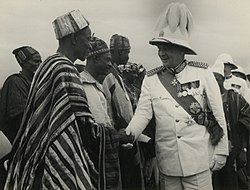Political Parties as Colonial Masters: How Partisan Politics Echo Colonial Exploitation in Ghana-Article By Boateng Emmanuel Junior, Member
Introduction
The comparison between Ghana’s political parties and colonial rulers is both shocking and insightful. Just as colonial monarchs used to plunder resources and enforce institutions that benefited their own interests, Ghana’s political parties frequently put power and self-interest over real national development. Despite gaining independence in 1957, the country is still plagued by systemic issues such as poverty, infrastructure decay, youth unemployment, and regional inequality, many of which are exacerbated, if not caused, by the short-termism and tribalistic tendencies of partisan leadership.
After nearly seven decades of independence, Ghana still struggles with a poverty rate of approximately 23.4% (Ghana Statistical Service, 2021), and over 1.2 million children are out of school. The northern regions continue to lag behind in development despite multiple government pledges. Infrastructure projects are routinely politicized; successive administrations abandon or rename those started by their predecessors, wasting public funds and stalling continuity.
The political landscape is established in a binary system (NDC vs. NPP) that echoes colonial “divide and rule” tactics. Loyalty is frequently directed toward the party rather than the nation. State officials are replaced in large numbers following elections, national resources are dispersed along partisan lines, and public office is typically viewed as a reward for political allegiance rather than as a call to service. The culture of “winner takes all” continues to drive corruption, with Ghana earning 43 out of 100 on the 2023 Transparency International Corruption Perceptions Index, placing 70th out of 180 nations.
It is disappointing that a party member celebrates when the ruling administration implements or make use of a program originally advocated by the opposition, celebrating the implementer as if it were a personal triumph rather than a shared national victory. This viewpoint indicates political possession rather than patriotism. This is not the Ghana we intend to establish.
This article contends that, like colonial masters, political parties in Ghana have sustained a structure of exploitation and divisiveness, stifling the country’s growth. By exploring these parallels and proposing actionable solutions, we can begin to chart a new path—one that puts Ghana, not political empires, at the centre of our future.
Do you want to read more and download a PDF version?





